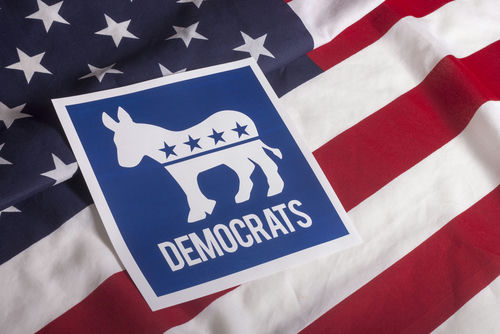Democrats are reeling as an unprecedented exodus of their own voters leaves the party scrambling to salvage its future amid a historic swing toward Republican registration.
Democrat Registration Collapse Reaches Crisis Levels
Across all 30 states and the District of Columbia that track party affiliation, the Democratic Party has suffered a net loss of 2.1 million registered voters since 2020. This sharp decline is not limited to battlegrounds—it stretches across blue, red, and swing states. Meanwhile, the Republican Party has gained 2.4 million registered voters, creating a net swing of 4.5 million toward the GOP, a shift unmatched in recent political history. Party strategists and analysts warn that such a dramatic realignment threatens the Democrats’ ability to compete in national and state elections through 2026 and beyond.
The registration crisis has been especially acute in Pennsylvania, long considered a critical swing state. There, the Democratic registration lead has collapsed from more than 500,000 in 2020 to just 53,000 by the summer of 2024. This erosion mirrors trends in other competitive states, where Republican registration gains are erasing Democratic advantages that had held firm for decades. The 2024 election cycle brought the consequences into sharp relief: Democrats lost the presidency, both chambers of Congress, and now face an uphill battle to remain relevant in a rapidly changing political landscape.
Key Drivers: Dissatisfaction, Defections, and Strategic Missteps
Recent research points to several underlying causes for the mass departure from Democratic rolls. Many working-class voters, Latinos, and younger Americans have become disillusioned with the party’s messaging and leadership. High-profile defections—such as Ed Hale’s switch from Democrat to Republican in Maryland—have captured media attention and further eroded confidence among remaining Democratic voters. Political analysts note that the party’s perceived embrace of divisive social agendas, fiscal mismanagement, and a growing disconnect from everyday Americans have contributed to the crisis. The situation is compounded by internal disagreements over strategy and outreach, as factions within the party struggle to chart a path forward.
Party leaders have publicly acknowledged the crisis, with calls for urgent action echoing from national and state officials. While some have announced new outreach and registration initiatives, details remain scarce, and no significant turnaround has emerged. Experts like Casey Burgat of George Washington University argue that the registration decline is a symptom of long-standing and unresolved issues. The inability to connect with key constituencies—especially in the heartland and among non-coastal communities—has left the party vulnerable to further losses and internal fragmentation.
Wider Implications: Shifting Power and Voter Realignment
The ongoing shift in party registration carries both immediate and long-term consequences. In the short term, Democrats’ reduced ability to mobilize voters puts their hold on competitive districts and statewide offices in jeopardy. Over the longer horizon, if the trend continues or accelerates, the Democratic Party risks becoming a regional or minority force in American politics. The net result is a political landscape increasingly dominated by the GOP, with major implications for policy, governance, and the preservation of conservative values.
Report: Democrats in ‘deep political hole’ as millions of Dem voters leave party https://t.co/TuqEPf8V8y
— Observing Time
(@TimeObserving) August 22, 2025
Communities that once formed the backbone of the Democratic coalition—urban voters, young people, and minorities—are now expressing frustration or disengagement. Economic and social policies may shift further as Republicans consolidate power, altering funding priorities, regulatory approaches, and the design of public programs. The consulting, technology, and advocacy sectors are already adapting to the new realities, as both parties reassess their strategies in the face of a rapidly evolving electorate.
Expert Analysis: What Comes Next for Democrats?
Industry observers, political scientists, and former party loyalists agree: the Democratic Party’s registration crisis is not a passing trend, but indicative of deep-rooted challenges. Experts emphasize the need for a comprehensive reassessment of party values, messaging, and constituent engagement. Some see the current realignment as a broader shift in American politics, while others view it as a rebuke of specific policies and leadership choices. Regardless of interpretation, the registration crisis has forced the party into a period of soul-searching and strategic recalibration. Whether Democratic leaders can reverse the slide—and reconnect with disaffected Americans—remains an open question as the 2026 midterms approach.
Sources:
Dems Panic as Party Faces Voter Registration Crisis
Democrats face voter registration crisis as party affiliations shift toward GOP: report
Click this link for the original source of this article.
Author: Editorial Team
This content is courtesy of, and owned and copyrighted by, https://ourpatriot.com and its author. This content is made available by use of the public RSS feed offered by the host site and is used for educational purposes only. If you are the author or represent the host site and would like this content removed now and in the future, please contact USSANews.com using the email address in the Contact page found in the website menu.





